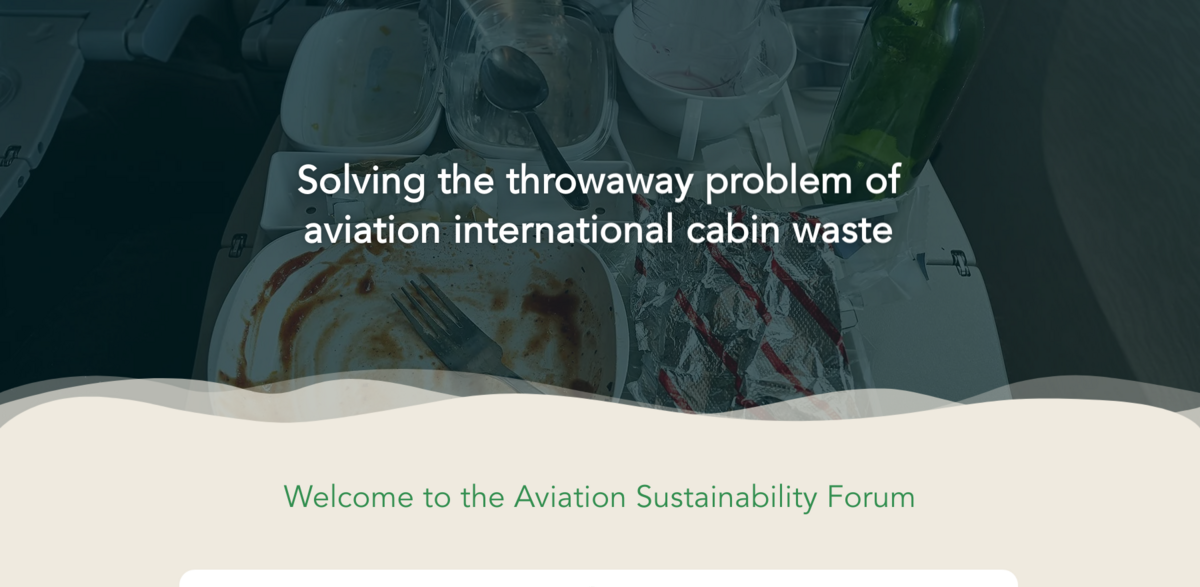What is the Aviation Sustainability Forum?
Welcome to the Aviation Sustainability Forum (ASF) – a game-changer in tackling one of aviation’s sneakiest problems: cabin and catering waste. This issue is costing the sector billions every year. Think about it – untouched food and drink make up a huge chunk of this waste, and because of strict regulations worldwide, most of it ends up incinerated or buried deep in landfills. With passenger numbers expected to double to 10 billion by 2050, this problem isn’t going away anytime soon. The ASF was born in 2019, created by industry pros who saw this growing challenge firsthand. Initially, it was all about bringing key players together to share info and best practices. But soon, they realized the sector desperately needed solid data – what exactly is this waste, what’s it made of, where is it onboard, and how much of it is there?
Main Benefit: Data-Driven Waste Reduction
The ASF’s answer? The Cabin Waste Composition Audit (CWCA) program – a sector-leading initiative developed with IATA and SATS Catering Singapore, the first catering unit worldwide to adopt it. This program is a total game-changer, helping airlines and caterers get a clear picture of their inbound cabin waste levels and composition. Here’s why it matters:
- Billions of dollars lost annually due to cabin and catering waste
- Passenger numbers set to hit 10 billion by 2050, increasing waste challenges
- ASF’s CWCA program provides rich, ongoing data collection
- IATA recognized the CWCA tool in July 2024 as the industry standard for cabin waste measurement
- Data accessed via a secure Insight Platform with benchmarking and filtering tools
The Cabin Waste Composition Audit (CWCA) Program Explained
The CWCA program is all about standardization. Before ASF stepped in, there was no harmonized way to audit cabin waste, making it tough for airlines, caterers, and policymakers to make informed decisions. The ASF developed a standard operating procedure (SOP) and audit protocol, now endorsed by IATA, that sets the industry benchmark. Airlines and caterers follow this method, upload their data to the Insight Platform, and get confidential, detailed insights into the size, scale, and composition of their waste. Plus, they can see how they stack up anonymously against others. This harmonized data is crucial for pushing forward risk-based regulatory changes that support sustainability.
ASF’s Vision for a Sustainable Aviation Future
The ASF isn’t just about collecting data – it’s about using that data to drive real change. Their vision? To support the aviation industry in developing best practices, sharing information, and creating solution pathways that reduce cabin waste and boost circularity. The aviation sector is known for innovation and problem-solving, so why not lead the way here? The ASF is committed to playing its part in making sure the industry does better, and faster.
Mission: Tackling Aviation’s Throwaway Problem
At its core, the ASF’s mission is clear: solve aviation’s throwaway problem. This means cutting down waste sent to landfill and slashing emissions from incineration. The key? Showing that there’s a smarter, circular economy way to manage international cabin waste. It’s about proving that sustainability and efficiency can go hand in hand, and that the aviation sector can be a leader in this space.
Project Impact: Aligning with Global Goals
- SDG 12: Responsible Consumption and Production – reducing waste and promoting circular economy principles
- SDG 13: Climate Action – lowering emissions from waste incineration and landfill
- SDG 9: Industry, Innovation, and Infrastructure – fostering innovation through data-driven solutions
- SDG 17: Partnerships for the Goals – collaboration between airlines, caterers, IATA, and other stakeholders
Looking Ahead: Unlocking Industry Will and Regulatory Support
Data is just the start. The ASF aims to empower the sector with tools and support to introduce new processes and products that cut cabin waste and improve circularity. But it’s not just about what airlines and caterers can do alone – it’s about unlocking the will of industry governing bodies to back these solutions with smart regulation. The goal? Regulations that keep safety front and center but also allow aviation to become a circular economy leader when it comes to cabin waste. The time to act is now – because the future of sustainable flying depends on it.


















